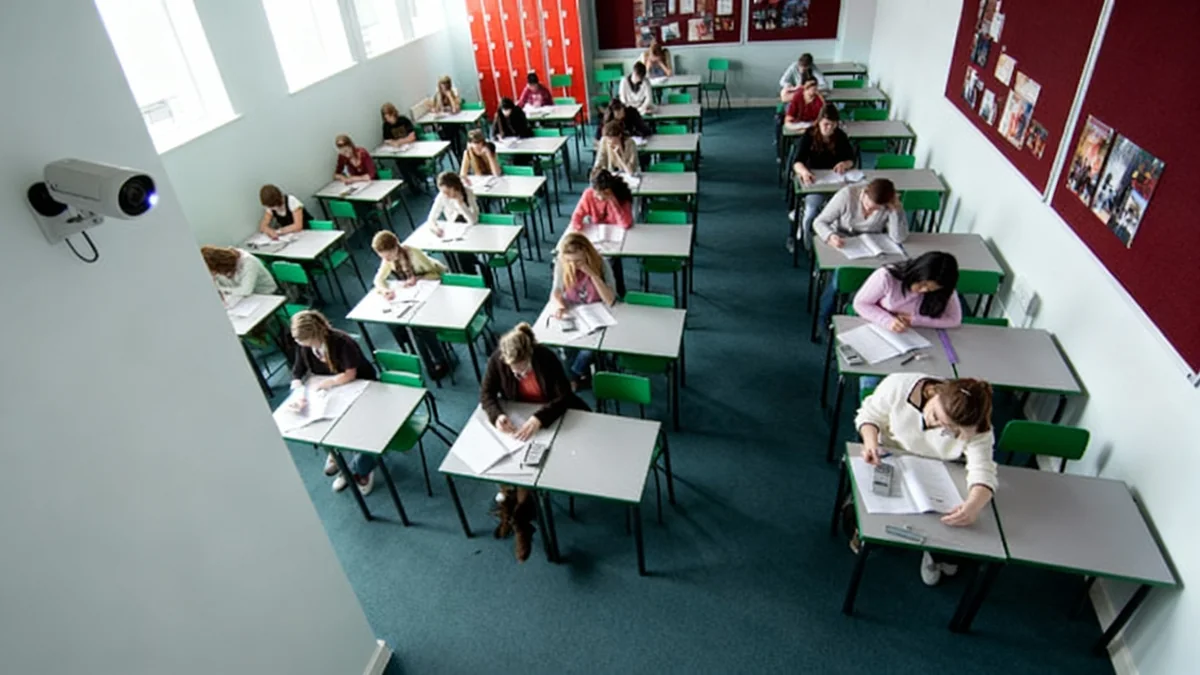A comprehensive year-long review of England's national curriculum has concluded with a call for significant reforms, including shorter GCSE exams, a reduced focus on rote learning, and a greater emphasis on skills for modern life. The 197-page report, led by Professor Becky Francis, suggests that the current system places excessive pressure on students and fails to adequately prepare them for the future.
Drawing on over 7,000 public responses, the expert panel's recommendations aim to rebalance the educational landscape, moving away from an exam-heavy model towards a more holistic and inclusive curriculum. The proposals cover primary, secondary, and post-16 education, signaling a potential shift in educational policy in England.
Key Takeaways
- A proposal to shorten the total length of GCSE exams by 10% to reduce student stress.
- Recommendations to slim down content in subjects like history and science to create space for other essential learning.
- A call to scrap the English Baccalaureate (EBacc) measure to encourage a broader range of subject choices, including arts and vocational courses.
- Suggestions to make Religious Education (RE) and primary school citizenship classes statutory parts of the national curriculum.
Rethinking Exams and Assessments
One of the most significant proposals targets the structure of GCSE examinations. The review found that England is an international outlier in the sheer volume and duration of exams taken by 16-year-olds. The panel argues that the total exam time for each pupil could be reduced by approximately three hours, a 10% cut, without compromising academic rigor.
This change is intended to alleviate the intense pressure students face during their exam years. The report suggests that the current system's focus on high-stakes testing may be detrimental to both student well-being and deeper learning.
Background on GCSEs
The General Certificate of Secondary Education (GCSE) is the primary set of qualifications taken by students aged 15-16 in England, Wales, and Northern Ireland. The system has undergone numerous reforms over the decades, with the most recent changes increasing the difficulty and changing the grading system from letters to numbers (9 to 1).
To complement the shorter exams, the review also recommends introducing a new diagnostic test in maths and English for students in Year 8. This assessment would not be a high-stakes exam but rather a tool for teachers to identify and address knowledge gaps early, ensuring students receive the support they need before starting their GCSE courses. This proposal, however, faces opposition from some teaching unions who are wary of introducing more standardized testing.
A Shift in Curriculum Content
The report advocates for a leaner, more focused curriculum. It specifically points to subjects like history and the sciences as areas where content could be slimmed down. The goal is not to diminish the importance of these subjects but to free up valuable teaching time for mandatory, non-assessed subjects that are crucial for personal development.
These include Physical Education (PE), citizenship, and relationships, sex, and health education (RSHE). Proponents argue that this rebalancing would provide students with a more well-rounded education that prepares them for life beyond the classroom.
Did You Know?
The English Baccalaureate (EBacc), which the review recommends scrapping, is not a qualification itself but a performance measure for schools. It requires students to take GCSEs in English, maths, sciences, a language, and either history or geography.
Embracing Diversity and Modern Skills
A central theme of the review is the need for the curriculum to better reflect modern British society. The report calls for a stronger representation of social and cultural diversity, allowing more children to see themselves and their heritage reflected in what they learn. This includes updating content across various subjects to be more inclusive and representative.
Furthermore, the recommendations emphasize the need for new skills. The current computing science GCSE is singled out for replacement. The panel suggests a broader GCSE in computing that would cover practical applications of digital technology, data analysis, and the use of artificial intelligence (AI), preparing students for a wide range of future careers.
The review heard evidence that RE provision in many schools “is not good enough and does not prepare pupils adequately for life beyond school.”
Citizenship education is also highlighted. The panel recommends making it a statutory subject in primary schools, incorporating essential modern literacies such as financial education, media literacy, and understanding climate change and sustainability.
Specific Subject Recommendations
Beyond broad structural changes, the report delves into specific subjects, offering clear proposals for reform.
- Religious Education (RE): The review proposes making RE a part of the national curriculum at all key stages. This would standardize its content, moving it away from the control of local advisory councils and ensuring a consistent quality of education on different faiths and worldviews.
- Primary Grammar: The panel calls for a review of grammar teaching and testing in primary schools. The aim is to shift the focus from theoretical grammar rules to the practical application of grammar in writing, potentially removing some content entirely.
- Triple Science: To promote STEM subjects, the report recommends an entitlement for any student who wishes to study individual biology, chemistry, and physics courses at GCSE (known as 'triple science'), rather than the combined 'double science' award.
- Arts and Vocational Subjects: By recommending the removal of the English Baccalaureate, the review seeks to reverse the decline of arts, creative, and vocational subjects. Critics of the EBacc have long argued that it unfairly narrows the curriculum and devalues subjects crucial for the UK's creative industries.
These targeted recommendations reflect a desire to create a more flexible and responsive education system. The proposals now await consideration by the government, which commissioned the review. The potential changes could reshape the educational experience for millions of students across England for years to come.





